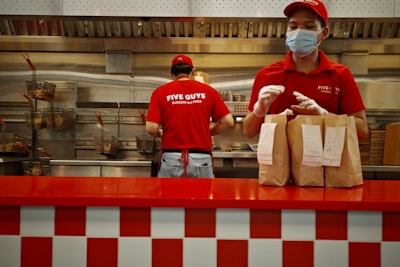Why the June 24 Fast Food Boycott Signals More Than Just a Protest
A massive boycott planned against a well-known fast food chain on June 24 is far more than just another flashpoint in today’s endless culture wars—it’s a signpost for shifting consumer power, ethical consumption debates, and the precarious future of brand loyalty in an era when every corporate move is under a microscope.
The Power Struggle Behind the Counter
At its core, this boycott illustrates the mounting tension between multinational corporations and increasingly value-driven consumers. The reasons for the boycott—whether related to labor practices, alleged political donations, pricing, environmental impact, or another trigger—are both specific and symbolic. They reveal just how quickly social outrage, organized through digital channels like TikTok and Twitter, can translate into mass action.
| Perspective | Key Arguments | Potential Impact |
|---|---|---|
| Supporters of Boycott | Corporate actions contradict public values (e.g., ethics, workers’ rights, environment). | Increased pressure on corporate policies. |
| Opponents of Boycott | Boycotts often harm hourly workers more than executives; efficacy is debatable. | Mixed results; can cause reputational risk, but may not change policy. |
Fast Food: A Flashpoint for Bigger Issues
Fast food chains are uniquely susceptible to boycotts because they sit at the intersection of everyday life, mass consumption, and social visibility. With millions served daily, a single day of successfully reduced foot traffic sends an outsized message—not just to one brand, but to the entire industry.
- Example: A 2018 study found that temporary boycotts led to a 1-3% drop in quarterly sales for affected chains, but more lasting damage was seen in brand reputation, especially among Gen Z and millennials, notoriously intolerant of corporate missteps.
- Surprising Fact: According to a 2023 survey, over 60% of Americans claimed to have participated in at least one product or brand boycott in the past two years—a record high.
The Dilemma: Short-Term Protest vs. Long-Term Change
For activists, the dilemma is whether a high-profile, one-day boycott is enough to force real change, or merely a vent for short-term frustration. Corporations, for their part, must weigh the risk of public backlash against the inertia of legacy business models.
Key Consideration:
“Consumers now have megaphones. A single hashtag or viral video can pivot public sentiment—and spending—overnight.”
— Brand Reputation Analyst, 2023
Beyond the Burger: What This Boycott Really Means
This planned boycott is not just about burgers and fries. It encapsulates a much deeper trend: the democratization of market power and the entanglement of eating habits with identity politics. Whether or not the June 24 effort leads to tangible changes, it’s a reminder that today’s popular brands are only as strong as their next trending topic.
This article was inspired by the headline: 'Massive 'Boycott' of Popular Fast Food Chain Planned for June 24'.

Comments
No comments yet. Be the first to comment!